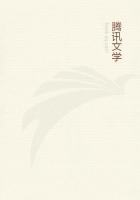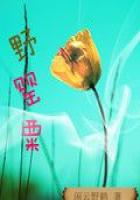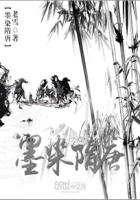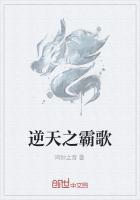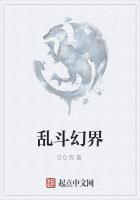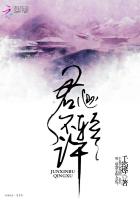After the suppression of the human sacrifices, inferior victims were substituted in some places; for instance, in the capital of Chinna Kimedy a goat took the place of the human victim. Others sacrifice a buffalo. They tie it to a wooden post in a sacred grove, dance wildly round it with brandished knives, then, falling on the living animal, hack it to shreds and tatters in a few minutes, fighting and struggling with each other for every particle of flesh. As soon as a man has secured a piece he makes off with it at full speed to bury it in his fields, according to ancient custom, before the sun has set, and as some of them have far to go they must run very fast. All the women throw clods of earth at the rapidly retreating figures of the men, some of them taking very good aim. Soon the sacred grove, so lately a scene of tumult, is silent and deserted except for a few people who remain to guard all that is left of the buffalo, to wit, the head, the bones, and the stomach, which are burned with ceremony at the foot of the stake.
In these Khond sacrifices the Meriahs are represented by our authorities as victims offered to propitiate the Earth Goddess. But from the treatment of the victims both before and after death it appears that the custom cannot be explained as merely a propitiatory sacrifice. A part of the flesh certainly was offered to the Earth Goddess, but the rest was buried by each householder in his fields, and the ashes of the other parts of the body were scattered over the fields, laid as paste on the granaries, or mixed with the new corn.
These latter customs imply that to the body of the Meriah there was ascribed a direct or intrinsic power of ****** the crops to grow, quite independent of the indirect efficacy which it might have as an offering to secure the good-will of the deity. In other words, the flesh and ashes of the victim were believed to be endowed with a magical or physical power of fertilising the land. The same intrinsic power was ascribed to the blood and tears of the Meriah, his blood causing the redness of the turmeric and his tears producing rain; for it can hardly be doubted that, originally at least, the tears were supposed to bring down the rain, not merely to prognosticate it. Similarly the custom of pouring water on the buried flesh of the Meriah was no doubt a rain-charm. Again, magical power as an attribute of the Meriah appears in the sovereign virtue believed to reside in anything that came from his person, as his hair or spittle. The ascription of such power to the Meriah indicates that he was much more than a mere man sacrificed to propitiate a deity. Once more, the extreme reverence paid him points to the same conclusion. Major Campbell speaks of the Meriah as being regarded as something more than mortal, and Major Macpherson says, A species of reverence, which it is not easy to distinguish from adoration, is paid to him. In short, the Meriah seems to have been regarded as divine. As such, he may originally have represented the Earth Goddess or, perhaps, a deity of vegetation; though in later times he came to be regarded rather as a victim offered to a deity than as himself an incarnate god. This later view of the Meriah as a victim rather than a divinity may perhaps have received undue emphasis from the European writers who have described the Khond religion. Habituated to the later idea of sacrifice as an offering made to a god for the purpose of conciliating his favour, European observers are apt to interpret all religious slaughter in this sense, and to suppose that wherever such slaughter takes place, there must necessarily be a deity to whom the carnage is believed by the slayers to be acceptable. Thus their preconceived ideas may unconsciously colour and warp their descriptions of savage rites.
The same custom of killing the representative of a god, of which strong traces appear in the Khond sacrifices, may perhaps be detected in some of the other human sacrifices described above. Thus the ashes of the slaughtered Marimo were scattered over the fields; the blood of the Brahman lad was put on the crop and field; the flesh of the slain Naga was stowed in the corn-bin; and the blood of the Sioux girl was allowed to trickle on the seed. Again, the identification of the victim with the corn, in other words, the view that he is an embodiment or spirit of the corn, is brought out in the pains which seem to be taken to secure a physical correspondence between him and the natural object which he embodies or represents. Thus the Mexicans killed young victims for the young corn and old ones for the ripe corn; the Marimos sacrifice, as seed, a short, fat man, the shortness of his stature corresponding to that of the young corn, his fatness to the condition which it is desired that the crops may attain; and the Pawnees fattened their victims probably with the same view. Again, the identification of the victim with the corn comes out in the African custom of killing him with spades and hoes, and the Mexican custom of grinding him, like corn, between two stones.
One more point in these savage customs deserves to be noted. The Pawnee chief devoured the heart of the Sioux girl, and the Marimos and Gonds ate the victim's flesh. If, as we suppose, the victim was regarded as divine, it follows that in eating his flesh his worshippers believed themselves to be partaking of the body of their god.
4. The Corn-spirit slain in his Human Representatives.

